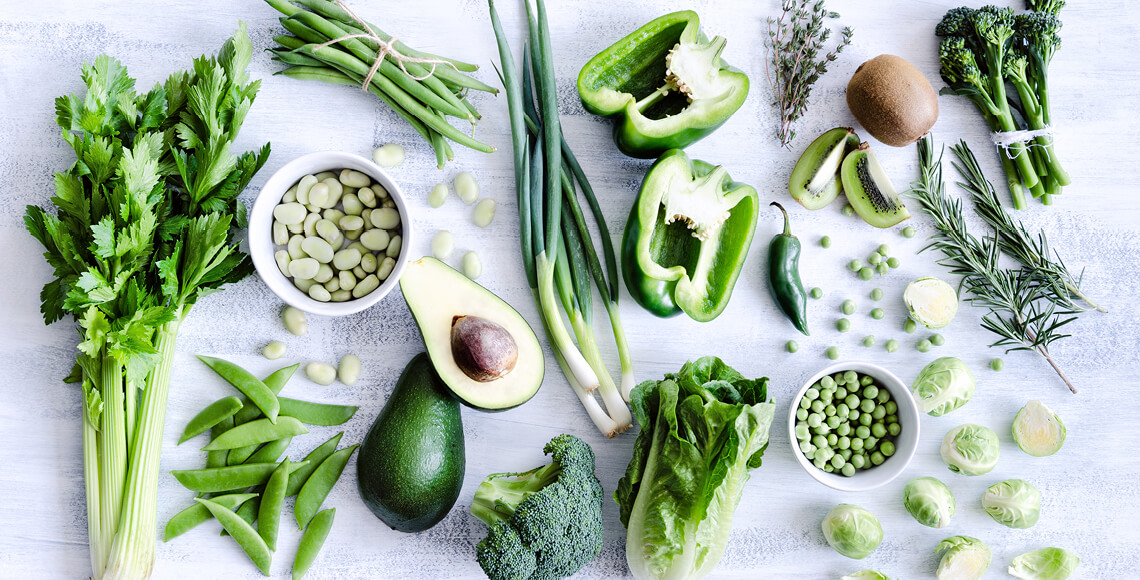Be Smart: Eat your greens to keep your mind sharp
A snappy memory, quick wit, critical thinking–these are aspects of a youthful mind that we all hope to enjoy well into our later years, so don’t skip the crossword puzzle in today’s paper and be sure to eat healthfully. Regular exercise and a healthy diet not only keep your body in great shape, they can also help keep your mind sharp as a tack as you age.
Go green
When it comes to good brain foods, new research suggests that you may want to add spinach, kale, collards, mustard and other greens to your plate. The study led by Martha Clare Morris, Sc.D. assistant professor for community research at Rush University Medical Center showed that people who ate one to two servings of greens a day had the cognitive abilities of someone 11 years younger compared with people who ate no greens.
Morris and her team tracked 954 men and women, average age 81, for 2 to 10 years. The researchers analysed the diets of the study participants and tested their mental acuity. “Each year, we administered 19 cognitive tests that assessed abilities including short- and long-term memory, cognitive speed, language skills, and problem solving,” explains Morris. And the leafy greens eaters performed the best.
Thank antioxidants
To identify which nutrients in greens might be responsible for the top test scores, researchers calculated the daily intake of nutrients from the foods consumed by study participants and matched those levels against the test results. They found that higher levels of vitamin K, lutein, folate, and beta-carotene from foods was associated with better brain power.
“Carotenoids, including lutein and beta-carotene are known to act as antioxidants in the eye and protect against a number of diseases, such as macular degeneration, but the role of carotenoids in the health of other regions of the brain is not known at this point, nor has the role of vitamin K on the brain been studied,” explains Morris. “We do know that low levels of folate raise homocysteine levels, which is associated with an increased risk for dementia.”
More research needs to be done, points out Morris. The only way to know which, if any, of the nutrients—vitamin K, lutein, folate, or beta-carotene—truly benefits brain health is to test each one individually. And further dietary studies are needed to confirm that eating greens can indeed prevent mental decline and possibly dementia and Alzheimer’s, but Morris’s study joins three others that have discovered an association between eating leafy green vegetables and slower mental decline.
Eat smart
Why wait for the final verdict? Dark-green leafy vegetables are nutrition superstars, rich in fibre, iron, magnesium, calcium, potassium, vitamins A, C, E, K, and some B vitamins including folate, which is good for your heart and helps prevent cancer. Calcium and vitamin K protect bone strength and help prevent osteoporosis. Finally, greens are abundant in antioxidants, making them one of the best cancer-fighting foods around. A diet high in antioxidants also lowers your risk for heart disease.
And you can eat lots and lots of green leafy veggies. They’re low in calories, carbs, and fat. A cup of spinach contains a mere 7 calories; a cup of kale, 8; and a cup of collards weighs in at a whopping 12 calories.
So go ahead and take a chance on the possibility that they may help you become the sharpest 90-year-old on your block, because there are plenty of reasons to pack dark green leafy vegetables into your diet. Toss them together in a salad. Add them to soups, stews, and omelets. Pile them onto sandwiches, or savor their flavour solo, sautéed in a little olive oil and garlic.
Eating greens every day is a very smart thing to do, wouldn’t you agree?








